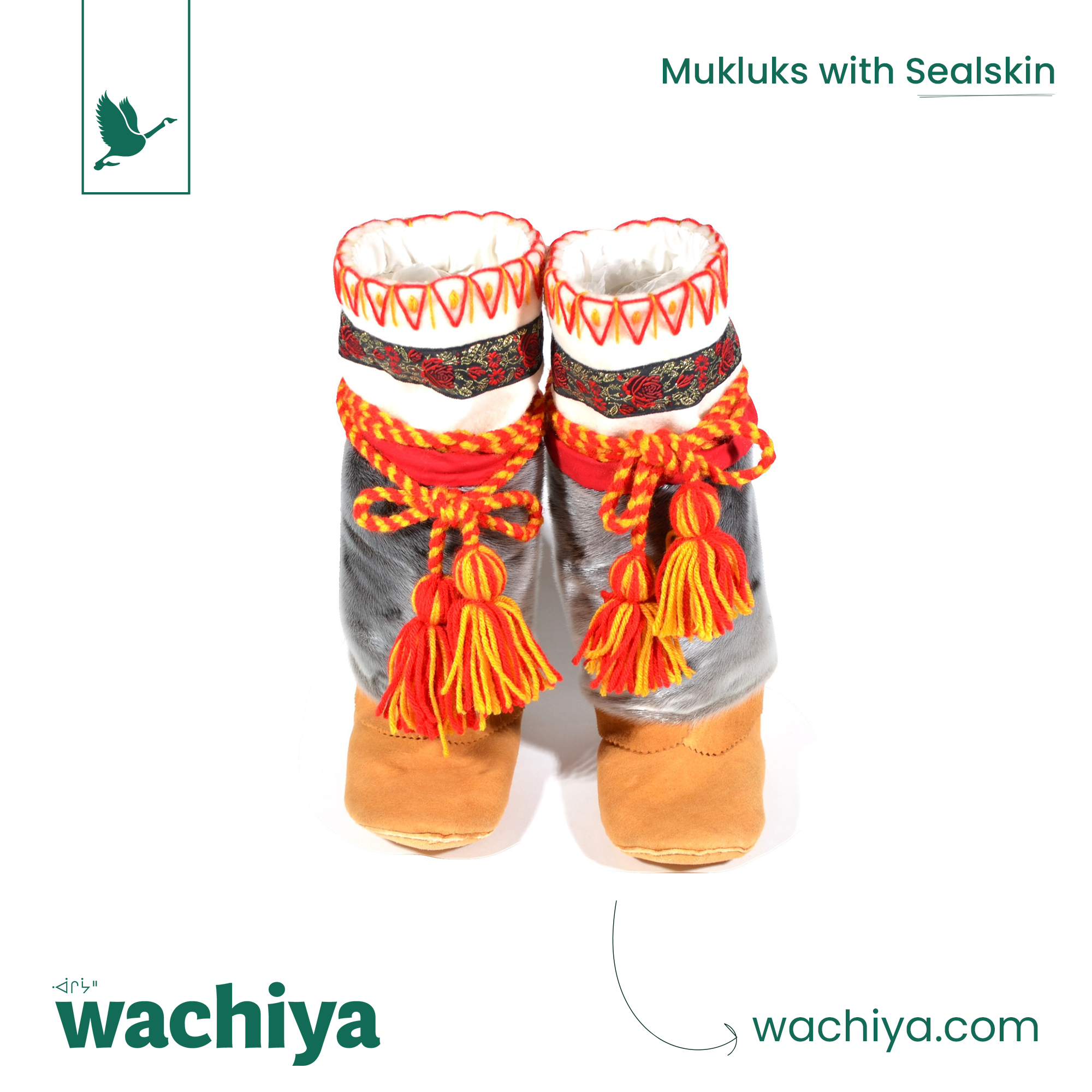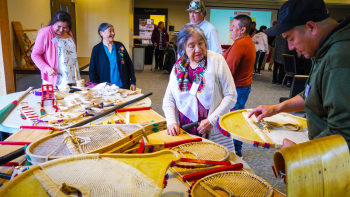Image Caption
Summary
Local Journalism Initiative Reporter
Windspeaker.com
The virtual store, operated by the not-for-profit organization Cree Native Arts and Crafts Association, came online March 31 and there’s a promise for a brick-and-mortar location in Montreal by Christmas.
It has been a long time in the making, says the association’s executive director Gaston Cooper.
Wachiya (meaning “hello” in Cree) was initially operated decades ago by the Cree Nation Government in Val-d’Or, Que. However, it closed its doors in the 1990s as a number of challenges surfaced, says Cooper, not the least of which was operating a Cree-driven store in a non-Cree community and the distance artisans had to travel to stock their craft in the store.
Developing arts and crafts and cultural industries, which included opening and operating a new store, was passed on to the association in 2004, when it was created. The mandate fell under the James Bay and Northern Quebec Agreement signed in 1975.
Earlier attempts to open a physical store were unsuccessful and funding for an online store 10 years ago was hard to come by, says Cooper.

But then the coronavirus pandemic hit in 2020. The way of doing business changed, he says, and the association took advantage of that change.
With a business plan in preparation before the coronavirus shut down in-person shopping and people went to online purchasing, changes were made to the business plan which was submitted to the board of directors. It received approval in April 2022.
“From there, we went ahead, seeking funding and within a matter of a month, we were able to gather all the funds that we needed to start up the business,” said Cooper.
Most of the funds came from the Cree Nation Government, with a “small portion” contributed by the Quebec government through its Regions and Rurality Fund.
The online store carries a wide variety of products including clothes, accessories, jewellery, traditional objects and miniatures, which are produced by close to 900-member artisans.
Those artisans belong to the 11 Eeyou nations, 10 in Quebec and one in northern Ontario, MoCreebec Nation, which are members of the Cree Nation Government.
And everyone of those members is paid immediately by the association when their products pass quality testing and before they are sold online.
“I think we purchased over an excess of about $200,000 worth of traditional products and it's still going up every week. Almost every other day we get somebody that's calling in that has something for sale,” said Cooper.
Along with quality control, the association also labels for authentic Cree products.
Products are marked up 30 per cent online in order to cover salary and overhead costs.
Orders for online purchases are filled “very, very fast” with a goal for customers to receive their products within two to five business days.
“There's no hold back (on product). As long as they're available online they'll be shipped within a few hours of some of the orders placed. That's how rapid our workers are,” said Cooper, who adds it’s important to have that quick turnaround time.
As new product arrives every day, the site is constantly updated with photographs and the artists’ names. Anything that is out of stock is marked “sold out.” Customer service also responds to telephone calls and email inquiries.
“Wachiya is a big part of the Cree nation, especially for the artist, because there's no other venue for them to sell their product,” said Cooper.
Practise has been for artists to use either social media or to travel distances incurring gas, food and motel expenses.
“And at the end of the day, they're not really making a living. We're… giving them an opportunity to simplify things. They don't need to spend all that money because their product is already sold when it's made,” said Cooper.
The association is working to secure partnerships with a number of companies, including Air Creebec. That agreement would see Air Creebec become the official carrier of Wachiya artisans’ products. Artisans would be able to drop off their products at designated centres or at an airport and Air Creebec would fly the product to Chibougamau, the airport nearest the association’s head office in Ouje-Bougoumou.
To complement the online store, the association is “looking for some funds,” says Cooper, with the intention of leasing space for a physical Wachiya store in a Cree-owned multi-million-dollar building located in the heart of Montreal. Once board approval is received, the plan is to open the store in December and selling more than Cree-made products.

“We're anticipating that we're going to be bringing in other nations right now. The Cree market is already at its peak. We're going to need more suppliers, more artists to…pay for the overall cost at the Montreal store,” said Cooper.
While the focus is presently on Canadian sales, Cooper says research is going into markets in the United States and Europe. However, specific agreements will likely be needed for those sales as complications are anticipated with the sale of products made from moose hide, beaver skin and other animal products.
Local Journalism Initiative Reporters are supported by a financial contribution made by the Government of Canada.

